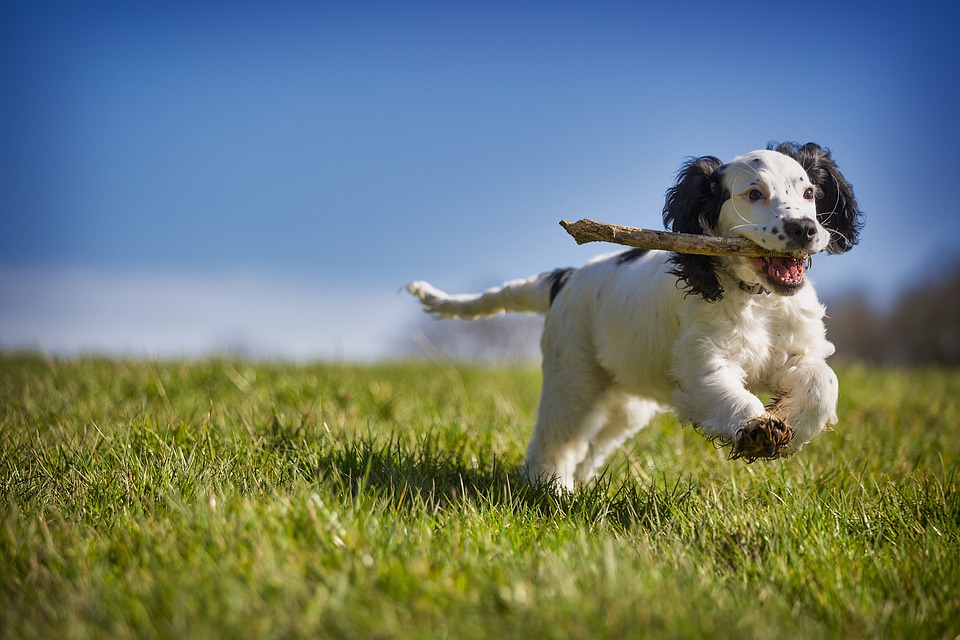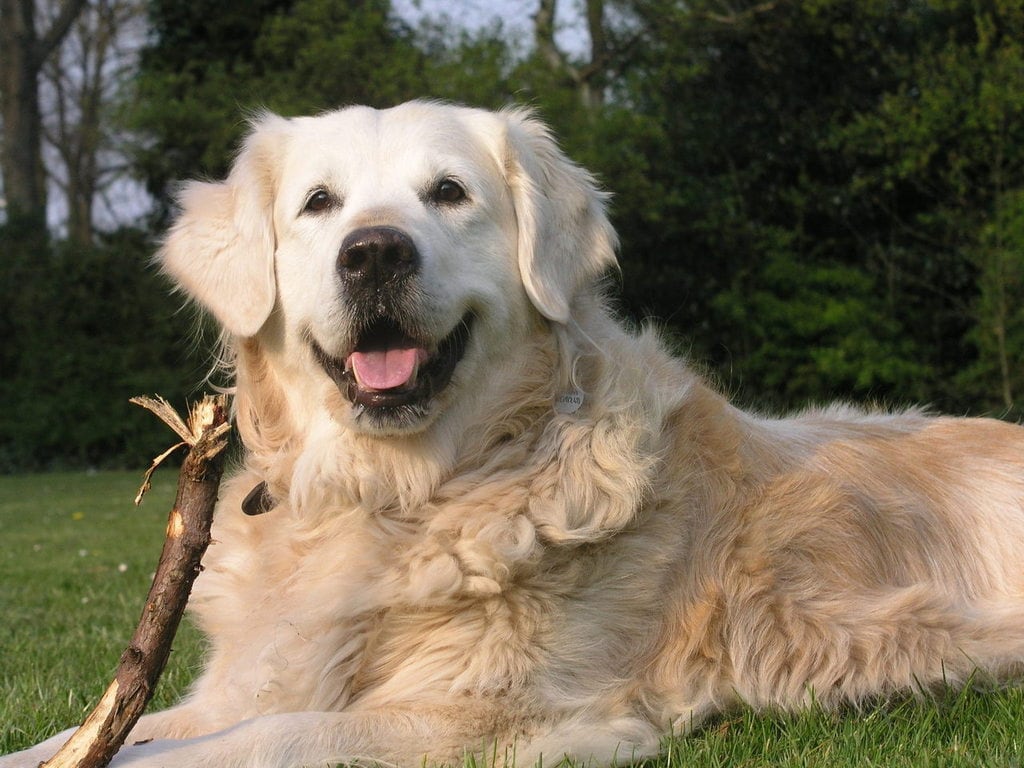You can spend hundreds of dollars on fancy toys for your four-legged canine companions. Yet, at the end of the day, bets are they’ll still prefer a stick. As a dog owner, you may wonder why your dog prefers a stick to expensive toys.
Dogs like sticks because sticks trigger their natural hunting instincts. When you throw a stick, they are wired to pursue it. Playing with a stick is also great fun for your dog, they smell good, and carry a stick can stimulate the same response in a dog as carrying prey would. While sticks can make a great toy, you need to proceed with caution to ensure your pet’s safety.
Stick-play will differ from breed to breed. However, once you understand the reasons behind why dogs love sticks, you need to know how to make sure the dog isn’t endangering itself by chewing the wrong type of wood.
The Reasons Dogs Love Sticks
While we can’t ask our dogs why they love sticks, the reasons are pretty straightforward. In addition to being fun, sticks also smell great and allow your pup to unleash their wild side.
Playing with a Stick Is Fun
By nature, dogs are energetic and like to have fun. Playing with your dog is believed to positively impact their mental, emotional, and physical selves (source).
Depending on the dog, your pooch might like to fetch the stick and bring it back to you, or they might prefer to fetch the stick and then chew the stick into pieces.
If your dog is having fun, it is always a good thing, but you need to make sure that you supervise them. Catching and chewing on sticks may pose some risks for your dog, which are certainly not fun.
The benefits of spending time with your dog and playing with them are endless. As a dog owner, it’s essential to provide your pet with enough attention. You can explore how your dog is affected by your attention in their article on whether dogs know when you ignore them.

Dog’s Have a Natural Hunting Instinct
When throwing a stick or a ball for a dog, the chances are that this is the time in their life that they will feel most like a dog. This is because our docile and domesticated canines still have a wild inner side. When we throw a stick, this natural hunting instinct kicks in, and our dogs want to chase down the stick and catch it.
Fetching the Stick Feels Good
Once your dog has captured its “prey,” they will feel great about themself and will have achieved a sense of accomplishment, so make sure to reward them with a “good dog.”
Sticks Smell Good
As strange as this one may sound, sticks generally smell good to dogs. Dogs have a great sense of smell, and it’s one reason they like sticks. Anyone who has wandered through the woods and smelt that deep, woody scent might be inclined to agree with their pet.
Is It Okay for My Dog to Chew on Sticks?
Depending on your dog, you may have to address the concern of chewing on sticks. Throwing and fetching is one thing, but if the dog decides to chew the stick into tiny pieces, you need to be very careful.
Vets will generally advise against sticks due to their potential to cause injury to your dog. This is the stance of Sean Wensley, who is the president of the British Veterinary Association, as quoted in a BBC article on the dangers of playing fetch with a stick (source).
Sean advises that dog owners only invest in safe toys such as balls or toys designed specifically for dogs.
However, depending on your dog, you might find it challenging to keep them from picking up a stick on a walk or even in your own garden.

The reasons you need to be mindful of letting your dog chew on a stick are two-fold. The first area of concern is that if your dog chews the stick, pieces of it may make their way into the dog’s digestive tract. The pieces may also get lodged in their teeth and gums.
If you see your dog chewing a stick, always encourage the dog to spit out the wood and not swallow it. If you notice your dog is pawing at their mouth, it may be because something is stuck (source).
The second concern is that the wood your dog is chewing may be poisonous to them. The most toxic tree species are the Yew, Black Cherry, and Red Maple.
The American Kennel Club (AKC) recommends just using common sense when it comes to your canine. If you have been out for a jaunt in the woods or the park, then make sure you check your dog when you get back home. We can’t wrap our dogs in cotton wool, but we can be mindful while having fun.
It’s wise to supervise your dog while they are outside, especially in an area where they might pick up an unfamiliar stick, like in a forest or on a hiking trail. You can also clear your garden of any sticks just as a precaution.
If you are still concerned about your dog’s stick-chewing tendencies, the AKC recommends a list of dog-friendly toys, which includes “Barkley.”
Barkley is a toy that is shaped like a stick and designed to fool your four-legged friend into thinking it’s a real stick. Whether your dog will be fooled by this little trickster is uncertain, but it’s perhaps worth a try.
If you find your dog is behaving strangely or is unwell after chewing a stick, take them to the vet immediately.
There is also a phenomenon known as “destructive chewing.” This can be a result of many factors, including puppy teething (source). If you have a new puppy, you may need to teach them not to teeth on sticks.
Final Thoughts
The fact of the matter is that most dogs love sticks. It is essential to be aware of the health risks and the fact that injuries from chewing sticks may occur, but these are not considered the norm.
Dog owners should always check on their pet if they have chewed or swallowed wood but also use their common sense and make sure that their dog is suitably supervised.


0 Comments